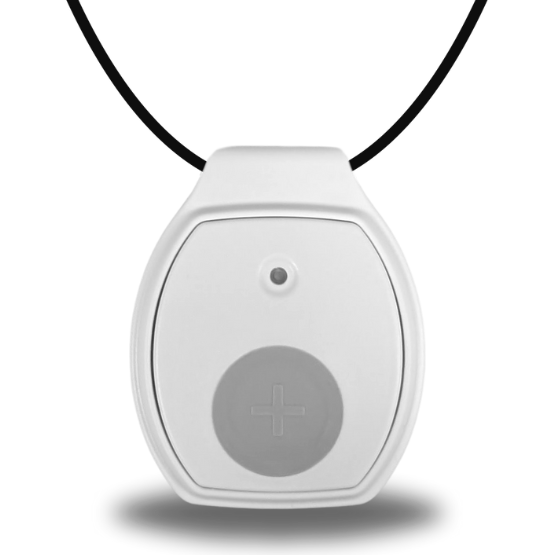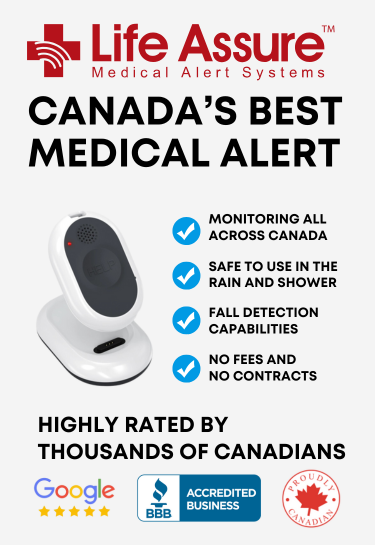Seniors Health Services: How to Access and Navigate Healthcare for Seniors
When you are aging, your health concerns may take newer and worse forms. Seniors usually need specialized attention and various services. This article helps you understand the options you have in seniors health services and how exactly to access or navigate through them.
Life Assure Product Quiz
Find The Perfect Medical Alert Device
Take our 30 second quiz and discover which Life Assure medical alert device is the right fit for you or a loved one.
Life Assure Product Quiz
Find The Perfect Medical Alert Device
Take our 30 second quiz and discover which Life Assure medical alert device is the right fit for you or a loved one.
Understanding Seniors' Healthcare Needs
Seniors’ healthcare needs usually include both physical and mental health challenges. Those who have diabetes and heart disease usually require such healthcare.
This also applies to those with memory issues like Alzheimer’s. Apart from these, people getting older need help with moving around and remaining emotionally well.
Seniors tend to face age-related sensory impairments over time as well. This means they might experience hearing loss and declining vision. These conditions are often manageable. However, they do hinder the senior’s ability to maintain their independence and participate in daily activities.
Senior health services act as preventive care. These are important to maintain the seniors’ health. Regular screening and vaccination are all part of these services. These help detect and address health issues on time.
As a result, the seniors are able to lead a much better life in the long run. Mental health support is also facilitated with these services.
Depression and anxiety are usually addressed in mental health support. The feelings of isolation and loss usually trigger these mental health conditions in seniors.
Types of Senior Health Services Available
Let us look into the types of senior health services available:
Primary Care
Primary care is a foundation service in senior healthcare. Here, general practitioners will focus on managing overall health and conducting regular checkups. This also includes addressing non-urgent medical concerns.
Primary care staff is the first point of contact and plays an important role in conducting specialized care if required.
Seniors need to maintain long-term relationships with primary healthcare providers so their care is continued in the long run. Those with chronic conditions will benefit from this greatly.
Specialized Care
Seniors usually need specialized medical attention. This means having a cardiologist at hand for their heart conditions or an endocrinologist for diabetes. Similarly, they might need a geriatrician for age-specific care and a neurologist to maintain their dementia.
Specialized care ensures that each senior gets their treatment done by an expert. This way, they can get the right attention for their complex medical needs.
Primary Care
Primary care is a foundation service in senior healthcare. Here, general practitioners will focus on managing overall health and conducting regular checkups. This also includes addressing non-urgent medical concerns.
Primary care staff is the first point of contact and plays an important role in conducting specialized care if required.
Seniors need to maintain long-term relationships with primary healthcare providers so their care is continued in the long run. Those with chronic conditions will benefit from this greatly.
Home Healthcare Services
Seniors who like to receive healthcare in familiar surroundings vouch for home healthcare services. These work for both medical and non-medical assistance. Seniors receive skilled nursing and physical therapy under this form of care.
They also have assistance with their medication and daily activities (bathing, meal prep, etc.) in these services. Home healthcare helps seniors maintain their independence without having to negotiate on the care they need in a comfortable environment.
Assisted Living and Nursing Homes
Assisted living facilities bring a middle-ground approach. These are for seniors who only need some help with daily activities but do not necessarily need intensive medical care. Here, services like meal preparation and housekeeping are provided.
Seniors also get assistance with transportation to medical appointments. Nursing homes are another approach where there is 24/7 medical supervision for seniors going through severe health issues or disabilities. Both of these options are about safety while also making seniors feel socially engaged.
Wellness Programs
Wellness programs are about promoting healthier aging. They do this through physical fitness, mental stimulation, and social engagement. Seniors get to enjoy activities like yoga and art therapy here! They also get to be a part of group outings.
These are great for their mental and physical well-being. A sense of community is also fostered in the process. A lot of wellness programs are made to accommodate the unique abilities and limitations of seniors. This ensures inclusivity and accessibility.
How to Access Senior Health Services
Accessing healthcare services for seniors may seem hard at first, but there are various ways to do it. Here is how to access senior health services:
Medicare and Medicaid
Medicare provides health insurance that can be redeemed if you are 65 or older. Your hospital stays and doctor visits are covered by it. It also covers some prescription drugs. Its advantage plans can also help you cover the costs of your vision and hearing treatments. Seniors with limited incomes benefit from this greatly.
Private Health Insurance
Private health insurance can be used as a supplement to Medicare. It can be used to cover expenses not covered by the latter. This can include additional dental and vision care. You can look into the available policies at your convenience to find one that is tailored to your needs.
Seniors with private insurance need to compare their plans annually. This needs to happen during open enrollment to ensure they are getting the most of these benefits.
Community Resources
Local community organizations often provide seniors with free or low-cost healthcare services. This can ensure proper health clinic visits and even transportation so seniors can reach their medical appointments on time.
They can even get help with meal delivery programs. Churches and senior centers also provide support services and guidance. For example, community health drives often provide free blood pressure and cholesterol screenings. These are important forms of preventive care.
Online Resources
The internet is an important tool for seniors seeking healthcare information. Websites like health.gov and the National Council on Aging provide great resources on seniors health services.
These can be tips on what care to choose or articles for understanding benefits programs. Online platforms are also great for when you are looking for telemedicine services.
Seniors can thus talk to healthcare professionals without leaving their houses. This is great for those who face mobility issues.
Family Support
Families are an important part of helping seniors access required healthcare. They can help one with scheduling appointments and paperwork. Family members can provide important emotional and logistical support to their senior family members.
Having your family as a part of your healthcare preferences helps you perform collaborative decision-making.











 Get Help With The Push Of A Button
Get Help With The Push Of A Button















